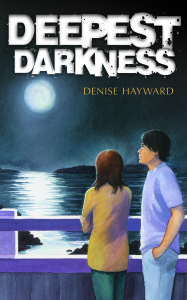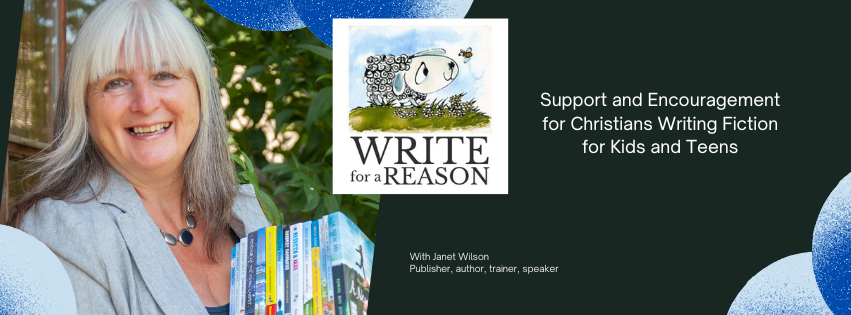The answer is, as few as possible! If you can keep the number of characters in your story down to the bare minimum, it will make your writing less complicated, thereby keeping the action going at a good pace. If, for example, you have two main characters, let’s say they are neighbours, and each of the children have several siblings, you could end up with eight or ten characters. Readers may quickly forget who is who and which sibling belongs to which family. There’s nothing wrong with a one-child family, if siblings aren’t part of the plot!
 Another disadvantage to having a lot of characters is that you will need to use a lot of words to tell us all about them and how they come into the story. This can drag the story out and make the plot cumbersome.
Another disadvantage to having a lot of characters is that you will need to use a lot of words to tell us all about them and how they come into the story. This can drag the story out and make the plot cumbersome.
Another quick tip about characters: children love to read how other children overcome obstacles, get the better of baddies and do all sorts of exciting, daring and dangerous feats . . . but they are not really that bothered about adults, so keep your grown-ups to a minimum.
Lastly, if you just have one or two main characters, you will have space for readers to get to know them really well, to get right into their hearts, their minds, their emotions. This will help us to truly engage with them and care about what happens to them. Always a good thing!
Trust that helps 🙂 Any comments, please do feel free to add them!

I’m not so sure that an only child (or rather, a couple of only children) is always the best idea in a story. It doesn’t have to slow the pace to give a kid a sibling … most do have one, though very sadly an increasing number of busy career-minded parents decide not to have more than one.
Why is a sibling useful in a story? You can build in (without taking away from the exciting plot) something about how we relate with our sibling, whether we get along, whether we fight and resent them, how this plays out. Swallows and Amazons were bigger families, to take a classic example.
In my novel (adult not children’s) a young doctor who comes from a pastor’s family is the second of 5 – this has formed a lot of his thinking, and is part of the parental faith style – and thus relates to the plot, though of course we don’t have busy scenes with everyone there etc except for the one where his girlfriend is bemused by being at a meal surrounded by everyone. Or even many scenes where any of them are there: but they exist. Of course, there are kids who are in single parent families who are onlys – that’s another contemporary category you might want to focus a story on, yes. How does a child raised by one parent, so that it’s always me and Mum (or Dad) relate to the world? Closer to adults than other children? Lonely? Precocious? Naive? And one with 2 parents can be a little triangle of ‘us’ or left out… We have twins – they relate more to their peer group than their parents often.
Writing for children, I can see your point – but I shudder at the way writers are advised that today’s readers can become muddled by the numbers of players in a plot: are readers that unable to cope? We were ourselves?
Yes, you have made many good points: but I hope you also are open to the idea that siblings aren’t so disposable, and might have a contribution to make to the adventure.
Hello Claire, thank you for commenting, and you’re absolutely right – siblings can add a lot to a story. And if they are adding to a story, they are necessary for the plot! The problem comes, in my view, when a writer gets carried away making a lovely family for their protagonist and takes time telling readers all about them without reference to the plot. I think you have hit the nail on the head when you say that you don’t get your siblings all at a meal together in your book – you bring them in when they are needed, but not when they are not. That’s a very good point – thank you for mentioning that.
In my experience, new writers tend to bring in way more characters than are needed – sometimes when I’m reading unsolicited manuscripts I get confused myself! More on creating engaging characters in the course 🙂
🙂